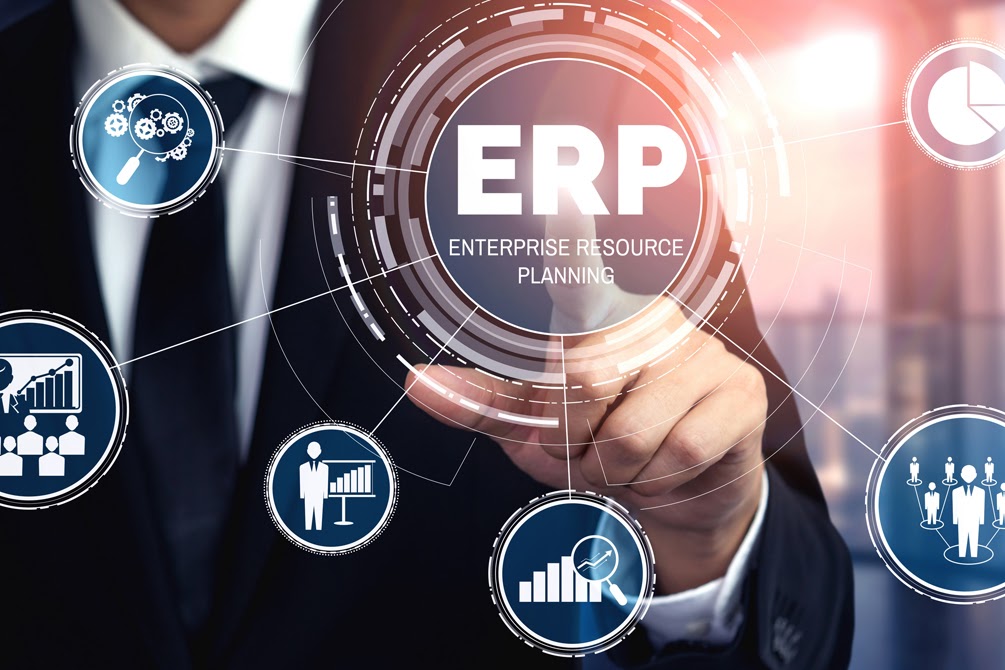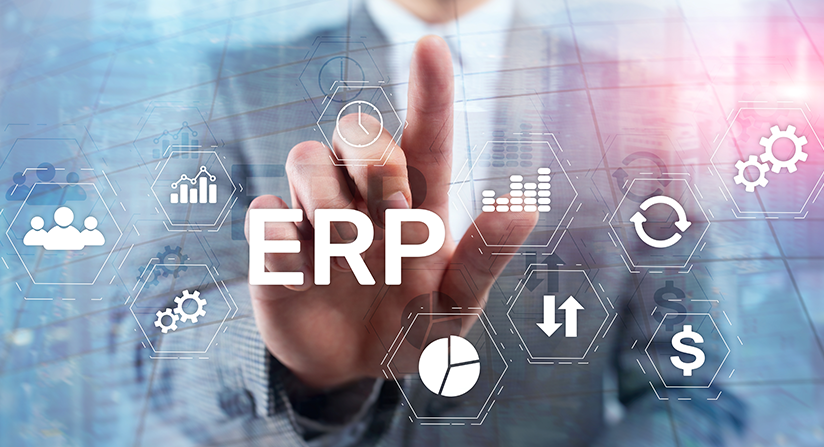The modern business world faces accelerating challenges that make success not only dependent on the quality of the product or service, but also based on the efficiency of managing resources and operations within the company. Here, the role of the ERP program is highlighted, which connects the organization's departments in a unified system that facilitates decision-making and enhances productivity. With the abundance of options available in the market, choosing the appropriate program becomes a decisive step towards success. In this article, we highlight the most important criteria for choosing a successful ERP program for your company Read on to learn more.

ERP Program Selection Criteria
Choosing the right ERP software requires a thorough understanding of a set of criteria that ensure the ERP software aligns with your company's goals and operational needs. The most prominent of these are:
1. Accurately analyze your company's needs
Before considering any system or service provider, you should start by analyzing your company's needs. Ask yourself: Which departments need improvement? Are you focusing on accounting, human resource management, or sales? Understanding your needs is the first step to choosing an ERP program that matches the nature of your business.
Ready-made software may seem tempting because it is available quickly, but it may not meet all your requirements, so it is better to choose an ERP system that can be easily customized according to the size of your business and industry.
2. Customizability and scalability
Every company is unique in the way they operate, which is why the ERP software you choose should be flexible and customizable. Small businesses need limited functionality at first, but they may expand in the future and need to add new modules such as purchasing, inventory management, or performance reporting. Find the best ERP software that allows you to easily add or remove modules without the need for a complete reprogramming. This feature ensures that the ERP program will grow with your company rather than hinder it.
3. Ease of use and training
Even the best ERP software in the world won't deliver results if your team doesn't know how to use it. ERP software should feature a simple, easy-to-understand interface, with a user manual and hands-on training for employees. Complex systems often lead to internal resistance and implementation delays, while easy systems encourage the team to use them efficiently. So, choose an accounting ERP software that offers technical support and ongoing training, whether through live sessions or an e-learning library.
4. Integration with other systems
Modern companies rely on more than one software to manage their business, so it is essential that the ERP software is able to integrate with other systems such as accounting software, CRM, or project management, and the more compatible the ERP system is, the more you will get a unified view of your company's performance. Good integration reduces errors caused by manual data entry, saving significant time and effort.
5. Security and data protection
One of the most important criteria that cannot be ignored is information security. ERP systems store huge amounts of sensitive data such as financial reports, customer information, and employee information. Therefore, the system must provide strong data encryption and the ability to specify access permissions for each user. It is also preferable to choose an accounting ERP system that offers periodic backups and data recovery options in the event of any technical failure.
6. Technical support and after-sales service
After purchasing the ERP software, the most important stage begins, which is technical support, Find a provider that offers responsive customer service around the clock, whether via phone, email, or live chat, and make sure you have a Service Level Agreement (SLA) that demonstrates quick response to resolve issues, and strong support means you won't stop working in the event of an emergency glitch.
7. Cost and value for money
Many small businesses make the mistake of choosing the cheapest one without considering the true value of the system. Cost alone should not be the primary criterion, but rather look at the expected return on investment in ERP software, and ERP corporate management software that is initially more expensive may be more economical in the long run if it helps reduce errors, improve efficiency, and increase profits, just choose software that provides a flexible pricing plan that fits your budget and allows payment by number of users or active units.
8. Reputation and customer experiences
Before making a decision, research the experiences of previous users,
Read reviews on company websites or specialized evaluation platforms, and ask the service provider about its current customers to ensure the best quality ERP system in different business environments. A system successfully used by hundreds of customers is often a safe and stable option.
9. Cloud version (Cloud ERP) is available
The current trend in the software world is towards cloud solutions, as they provide flexibility, security, and continuous updates. Therefore, you should choose a cloud ERP program that allows you to access your data from anywhere, at any time, without the need for internal servers or high maintenance costs. In addition, cloud versions ensure immediate security updates and continuous improvements without manual intervention.
10. Smart reports and analysis
One of the main reasons to use ERP software is to have accurate reports that help in making decisions. Choose a system that offers interactive control panels that display key performance indicators (KPIs) in real time, and the richer the ERP HR system is with analytical tools, the more you will be able to plan and make decisions based on accurate data.
Conclusion:
Choosing a successful ERP software for your company is not just a technical decision, but a long-term strategic investment that impacts all aspects of your business. You must balance cost, ease of use, security, and technical support, while ensuring that the system is compatible with your company's future needs. Remember that the best software is neither the most expensive nor the most popular, but rather the one that accurately serves your company's goals and helps you achieve sustainable growth.
Other topics:
Fekrait’s Software for Restaurant and Coffee Shops Management
Fixed Assets And Custody Management System
reference:
1. << Management Accounting>>, businessnewsdaily
2. <<Sage Business Cloud Accounting Review and Pricing>>, business

Add New Comment